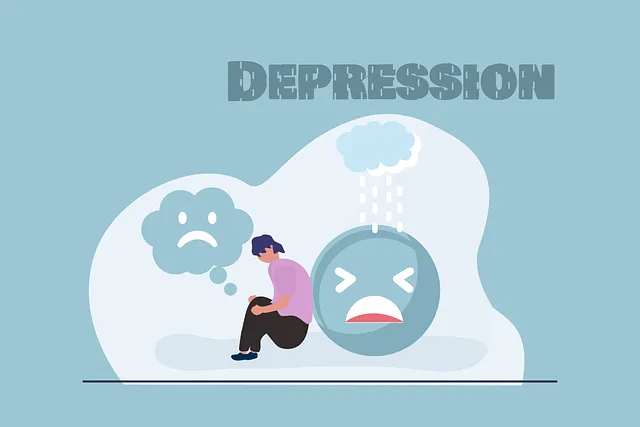In today's fast-paced world, mental wellness apps are in high demand due to rising stress, anxiety, and depression. Organizations like Westminster Kaiser Permanente are integrating technology into healthcare through initiatives involving their mental health number, emphasizing proactive mental health addressing. An ideal app offers features such as professional help access, personalized therapy sessions with progress tracking, mood tracking, meditation guides, and interactive stress management tools. It also reduces stigma through educational content, community forums, and peer support groups, while professionals can use risk assessment tools to manage crises. The app's development involves structured research, AI personalization, and crisis support via the Westminster Kaiser Permanente mental health number. Marketing success relies on partnerships with healthcare providers, evidence-based features, regular content updates, user testimonials, and social media campaigns, fostering community engagement and retention.
Mental wellness apps are transforming the way we approach our psychological well-being. With increasing demand for accessible and personalized support, understanding the need for these applications is more crucial than ever. This article explores key features that define effective mental health apps, delves into development processes using cutting-edge technologies, and presents marketing strategies tailored to organizations like Westminster Kaiser Permanente, leveraging their mental health number to engage users effectively.
- Understanding the Need for Mental Wellness Apps
- Key Features of an Effective Mental Health App
- Development Process and Technologies Involved
- Marketing and User Engagement Strategies for Mental Wellness Apps (with a focus on Westminster Kaiser Permanente mental health number)
Understanding the Need for Mental Wellness Apps

In today’s fast-paced world, mental wellness has emerged as a paramount concern for individuals across various demographics. The increasing pace of life, work pressures, and social expectations have led to a rise in stress, anxiety, and depression. This shift in public awareness has prompted a growing demand for accessible and convenient solutions to support mental health—enter mental wellness apps. These digital tools offer a discrete and personal approach to managing and improving mental well-being, catering to the diverse needs of users, from mindfulness exercises to cognitive behavioral therapy techniques.
The integration of technology into healthcare, as demonstrated by organizations like Kaiser Permanente with their initiatives under the Westminster mental health number, has opened new avenues for promoting mental wellness. Public Awareness Campaigns and Healthcare Provider Cultural Competency Training further underscore the importance of addressing mental health issues proactively. Development in this sector not only caters to individual users but also contributes to a broader cultural shift, normalizing conversations around mental wellness and fostering a supportive environment for all.
Key Features of an Effective Mental Health App

An effective mental wellness app should offer a comprehensive suite of features tailored to support users’ diverse needs. Firstly, it must provide easy access to professional help, such as integrating the Westminster Kaiser Permanente mental health number for direct consultation. Secondly, the app can facilitate personalized therapy sessions, tracking progress, and offering coping strategies. Features like mood tracking, meditation guides, and interactive tools for stress management are crucial in fostering self-care.
Beyond individual support, mental health apps play a significant role in reducing stigma associated with mental illness. By incorporating educational content, community forums, and peer support groups, users can engage in conversations that promote understanding and empathy. Moreover, implementing tools for risk assessment and management planning is vital for mental health professionals, enabling them to proactively identify potential crises and implement appropriate interventions.
Development Process and Technologies Involved

The development process for a mental wellness app involves several key steps. Initially, researchers and developers from organizations like Westminster Kaiser Permanente collaborate to understand the specific needs and challenges associated with mental health, often focusing on evidence-based practices such as Self-Awareness Exercises and Compassion Cultivation Practices. This phase includes extensive user research to pinpoint pain points and identify features that can effectively address them.
Technologies involved span from robust backend systems for data storage and processing, to frontend development utilizing responsive design principles to ensure a seamless experience across various devices. Incorporating AI and machine learning algorithms aids in personalizing content and tracking user progress is crucial. Moreover, integrating mental health resources like crisis support hotlines and expert consultations through the Westminster Kaiser Permanente mental health number enhances the app’s utility, ensuring users have access to professional help when needed.
Marketing and User Engagement Strategies for Mental Wellness Apps (with a focus on Westminster Kaiser Permanente mental health number)

Marketing and user engagement are key aspects to ensure the success of a mental wellness app, especially when competing for attention in today’s digital landscape. One effective strategy is to leverage partnerships with established healthcare providers, like Westminster Kaiser Permanente. Integrating their mental health number into promotional campaigns can increase app visibility among their patient base. This approach leverages trust and familiarity, as users are more likely to engage with an app recommended by a trusted healthcare provider.
Moreover, incorporating features that align with evidence-based practices such as Mindfulness Meditation and effective Communication Strategies can set the app apart. For instance, offering guided meditations tailored to reduce stress or anxiety, alongside interactive communication tools designed for building rapport with users, will attract and retain users. Regular content updates, user testimonials, and social media campaigns can further enhance engagement by creating a sense of community around mental wellness practices.
Mental wellness apps have emerged as powerful tools in addressing the growing need for accessible and personalized mental healthcare. By incorporating key features such as mindfulness exercises, mood tracking, and community support, these applications can significantly improve user mental health outcomes. The development process involves a careful blend of design, technology, and data privacy considerations. Effective marketing strategies, tailored to the unique needs of organizations like Westminster Kaiser Permanente, can drive user engagement and ensure that these apps reach those who need them most. Embracing this digital approach to mental wellness holds immense potential for transforming lives and fostering healthier communities.


